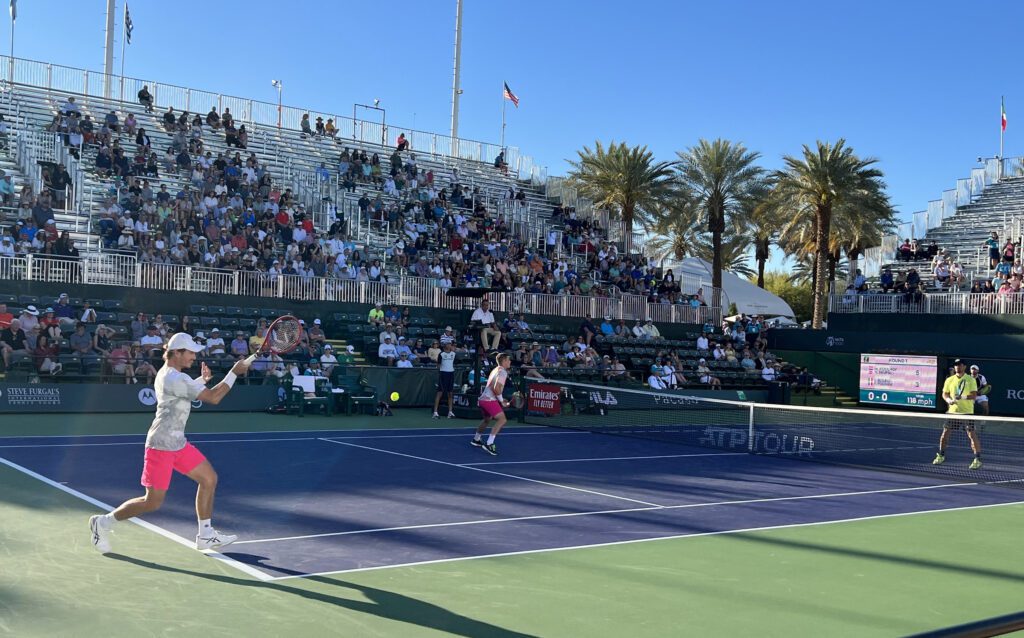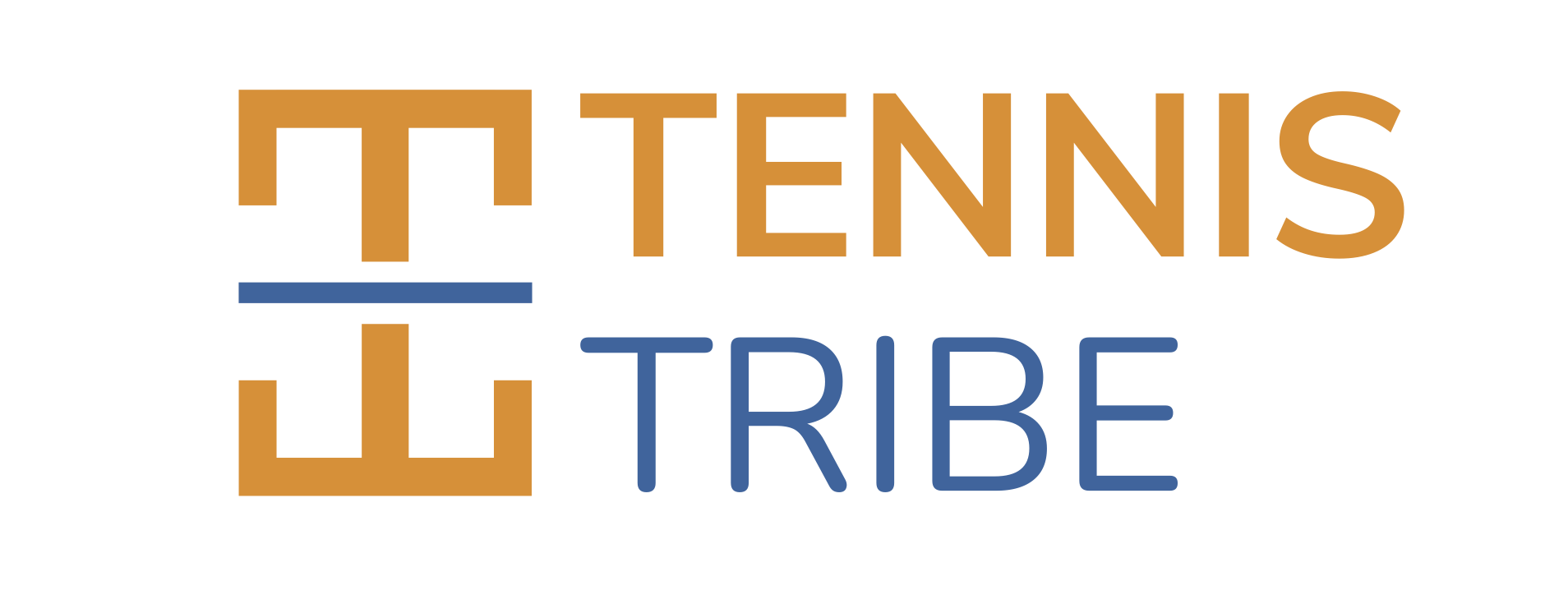These tennis principles are crucial to understand before you can improve your game. Most recreational and competitive USTA tennis players plateau at 3.5, 4.0 or 4.5 because they don’t apply these principles below.
Before getting into what to change about your doubles game, you must understand the principles behind each strategy we use. What is the idea behind each new tactic?
We’ll cover three principles of tennis in this lesson.
- The only four types of points, and how to win more of them. We’ll cover some key questions to ask yourself in every match.
- What to do if you’re struggling in a match.
- How to easily frustrate your opponent.
The Only Four Types Of Points In Tennis
You know the points where you hit an embarrassingly short lob and the other team has a sitting duck overhead that they miss in the net??
Even though you win the point, you usually get mad at yourself for the crappy lob.
Why is that?
Because you know if you keep hitting lobs like that, you’ll lose the match.
But think about it from the other perspective. If you missed the overhead, you get mad at yourself too. So we have a point that both players are unhappy with.
What if the overhead misser thought about it like the lobber though?
The internal dialogue (or scream towards yourself) might change from “Quit missing! Hit it!” to “I know if I keep playing points like that, I’ll win 70% of them because I don’t usually miss easy overheads.”

Tennis is a game of percentages. You have to keep the odds in your favor, but that doesn’t mean you won’t lose points that you should’ve won. Too many players get mad at themselves for losing points that they played nearly perfect.
Here are the four types of tennis points.

Be happy with any points that land in the green boxes. You’ll win more of those than you lose. Make adjustments for points played in the red boxes.
How do you know if the point was well played or not?
Next time try this. At the end of each point ask yourself.
If we played that same point 10 times, how many would I win?”
You’ll want to find yourself saying 7, 8, and 9 frequently.
If the opponent shanked a winner, or barely scooped a backhand volley over your head, then you probably win 7 or 8 out of 10. So be happy that you executed the point well, and know that if you keep playing that way, then the games and sets will go your way.
The same is true for each shot. If you made the opponent hit a running crosscourt backhand angle that lands just over the net, then you probably hit a good shot before that. If you make that person hit that running backhand 10 more times they probably make only 2 or 3. That point just happened to be one of those 2 or 3.
This doesn’t mean you need to change your gameplan. In fact, it probably means the opposite. If the opponent wants to keep taking their chances on shots like that, let them.
Make Tennis Simple
Any time you’re struggling in a tennis match, don’t focus on your opponent, focus on yourself. Going back to the basics, and hitting the easy shot first is the best way to start playing better.
When I’m missing my volleys early in a match, I’ll go back to the basic crosscourt volley, and just try to make it. Not put it away. Then after I make a few, I’ll slowly become a little more aggressive with each shot, building up my confidence along the way.
Another mistake people make is that they try to do too much when playing a more talented opponent. That’s actually the worst thing you can do. Pressing to try to do more than you’re typically capable of will make you go for too much and miss more than normal.
If you’re playing someone better than you, or even worse than you, come out and play your game first and make them beat you. If they start beating you pretty easily while you’re playing your game, then look at some different strategies to change the odds, but trying to do more is never the answer.
Changing It Up Always Wins
The most common issue I see in 3.5 to 5.0 tennis is predictability. Too often I see doubles matches turn into cross court baseline rallies between the server and the returner, with the net players watching.
If you’re predictable then you’re letting your opponent get into a comfort zone. Disrupting that comfort zone is one of the best ways to make your opponent self-destruct.
If you can slowly shift your game so that you enjoy the chaos and inconsistency, then you’ll have an advantage every time you step out onto the court. This is especially useful against teams who are more talented than you.
Being different is always a competitive advantage.
To recap:
- Make sure you’re playing good points and focus on how the point was played rather than the outcome. Ask “If we played that same point 10 times, how many would I win?”
- Simplify the game. If you’re unsure, go crosscourt. Hit the easy shot first. Don’t try to be a hero against the good teams.
- Change it up. Don’t let your opponent get comfortable or into a rhythm. Embrace the controlled chaos you create, and you’ll be more difficult to play against without actually getting better at your serve, forehand or volleys.

I love strategy in Doubles.
Me too Caroline 🙂 Thanks for the support!
I love the advice about not being afraid to get passed at the net. In practice, I notice when I move more at the net, even if the returner hits behind me, he often misses the alley. I notice, too, that once I start moving at the net the returner often misses his returns because he knows I’ve already shown him that I like to poach. It wins me a bunch of free ponts ( I play at ~ 3.5-4.0 level ).
The problem is when I play in a league match or a USTA match I’m SO afraid of losing EVEN ONE POINT, that I rarely poach in those events. It goes to your point #3: stop being so concerned with winning. I’m so glad you gave voice to these issues that have been floating in my head for many years and keeping me from winning more often. I’m now going to make a BIG effort to overcome my fear of losing and try to get better as a result. Excellent, very counter-intuitive, savvy, Brad Gilbert-esque advice, Will. Thanks very much!
Thanks for the support! I hope it helps your doubles game. Let me know how it goes 😉
I am enjoying all your theories and suggestions of how and what not to play! I will put some into my doubles game tomorrow! Thank you
Thanks Patricia! I hope it help you on the court 🙂